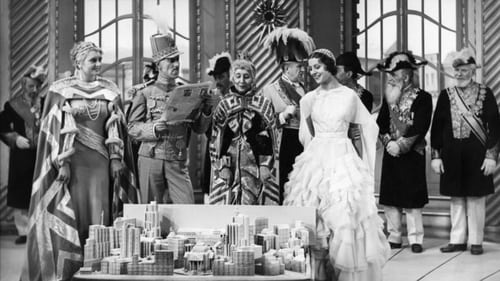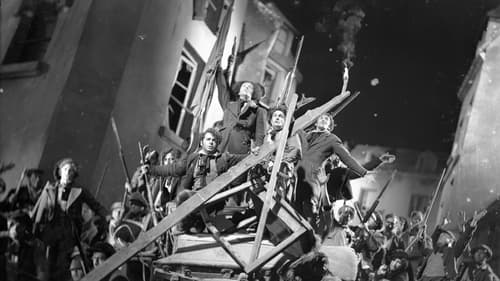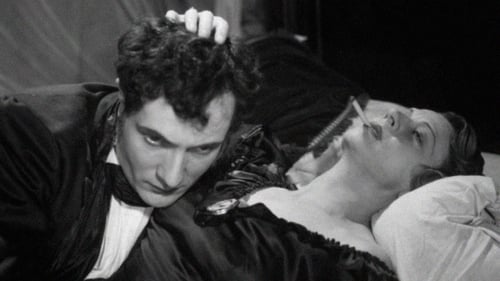Max Dearly
Birth : 1874-11-22, Paris, France
Death : 1943-06-02

Self (archive footage)
For Les étoiles ne meurent jamais, director/archivist Max De Vaucorbeil has assembled precious film clips of such Gallic greats as Louis Jouvet, Raimu, Harry Baur, Louis Salou and Marguerite Moreno. Francois Perier's narration links the various vignettes together. In its own way, Les Etoiles ne Maurent Jamais can be seen as a precursor to those now-ubiquitous "tributes" on such cable services as American Movie Classics and Turner Classic Movies.

Le prince Nirvanoff
As playboys cannot pay their debts anymore,their creditors suggest one of them marry a millionaire's daughter.

The owner of the place of Chamonix covets the inn, run by the Michel's uncle, whose business goes bad. Michel decides to participate in a ski competition to help uncle.

Monsieur Proey-Minans
A little Breton tries to save her boss's daughter an unhappy marriage.

Athanase Outriquet
Nine Bachelors is a 1939 French comedy film directed by Sacha Guitry and starring Guitry, Max Dearly and Elvire Popesco.[1] An opportunist dreams up a new scheme to make money when the French government passes a law forbidding foreigners from living in France. It's French title is Ils étaient neuf célibataires.

Mr. Chardonne
Discovering his wife's relationship with a middle-class snob, a husband tries his best to break this relationship by the seducer himself and ends up leaving with his wife for another wedding night in Venice.

Géodésias
In 1914, students living in a boarding house are disturbed by a young woman. On the eve of being called up, one of them declares his love for her. She abandons herself to someone who may not come back.

le père de Claudine
Poorly educated by her father, a wacky researcher, Claudine is a teenager full of life who loves her small village school run by Miss Sergeant. A new teacher, Aimée Lanthenay, arrives at the school. Seemingly awkward, she is actually an arrivist who manages to get the departure of Miss Sergeant.

A young unemployed girl pretends to be a boy and gets a job as a car washer.

Ramiro Mendoza
A rich Brazilian, Mendoza, visited Paris in 1900 and was romantically involved with the star of Offenbach's 'La vie parisienne' which was playing at the time. Thirty five years later, he returns with his son and granddaughter, who is engaged to a young Frenchman. But Mendoza's puritanical son forbids the marriage. Mendoza and the actress's friends conspire to change his mind and convert him to 'Parisian life.'

Jules Fabrejoul
In the Camargue, the rich owner Jules Fabregoul squanders all his fortune to please his mistress, a Parisian actress with luxury tastes. But he is not the only one to be in trouble. His niece is having sentimental problems: she thinks she is being cheated on by her fiance Gérard, a music-hall artist. She takes refuge with Jules's sister, Aunt Fabregoul, the director of a home for repentant young girls. But Gérard did not make a mistake and the reconciliation takes place during the recording of a radio program.

Melleville, le milliardaire
A wealthy businessman joins his servant, who has won a winter getaway, on the trip, but at the hotel where they stay the servant is mistaken for the master.

M. Maubert
An intelligent young worker, enterprising but boastful, repeats to all the winds that, if he were the boss, we would see what we would see. One of the main shareholders of the factory takes him at his word for twenty-four hours.

Banco
The Last Billionaire is a 1934 French comedy film directed by René Clair and starring Max Dearly, Marthe Mellot and Renée Saint-Cyr. The film is based on a fictional small European kingdom which is on the verge of going broke. Its French title is Le dernier milliardaire.

Arlette was born in 1918. Her mother made her lover and godchild named Pierre believe that he was the father of this child. Having become a beautiful young woman, Arlette falls under Pierre's spell and he offers to marry her to get her out of poverty.

M. Gillenormand
The lives of numerous people over the course of 20 years in 19th century France, weaved together by the story of an ex-convict named Jean Valjean on the run from an obsessive police inspector, who pursues him for only a minor offense.

Homais, le pharmacien
Soon after the death of his first wife (whose dowry was inadequate), Charles Bovary, a country doctor in Normandy, marries Emma Rouault. In her new home, Emma finds conflict with her mother-in-law, a husband uninterested in the social whirl, and general discontentment; thereby proving an easy conquest for philanderer Rodolphe. Other lovers follow. Does tragedy await?

A gambler has the same name as a billionaire. Suddenly he gets lucky, finds love and wins 24 million.

Surprised by the fog, the ship Fraternité suffered significant damage. Therefore, an investigation must be carried out in order to determine the conditions under which the incident occurred. It falls to deputy Puy-Pradal who has just been appointed high commissioner of the navy: the latter, after his meeting with an actor, gradually forgets the mission entrusted to him.

Macarol

Baron Wurtz
Remember when Julie Andrews in The Sound of Music says "Every time God closes a door, He opens a window?" Well, this is basically the same philosophy followed by a sage authority named Professor Azais. Though he is never seen in the film, Azais's influences dictates every move made by Le Baron Wurtz (Max Dearly), a private tutor. Though he suffers quite a few setbacks, Wurtz presses on, armed by the Azaiz philosophy that every time something goes wrong in one part of the world, it is balanced by something going right elsewhere. This "law of compensations" pays off in big laughs for the audience, and in a happy-ever-after for Wurtz. Azais was based on a play by Georges Berr and Rene Verneuil.

















